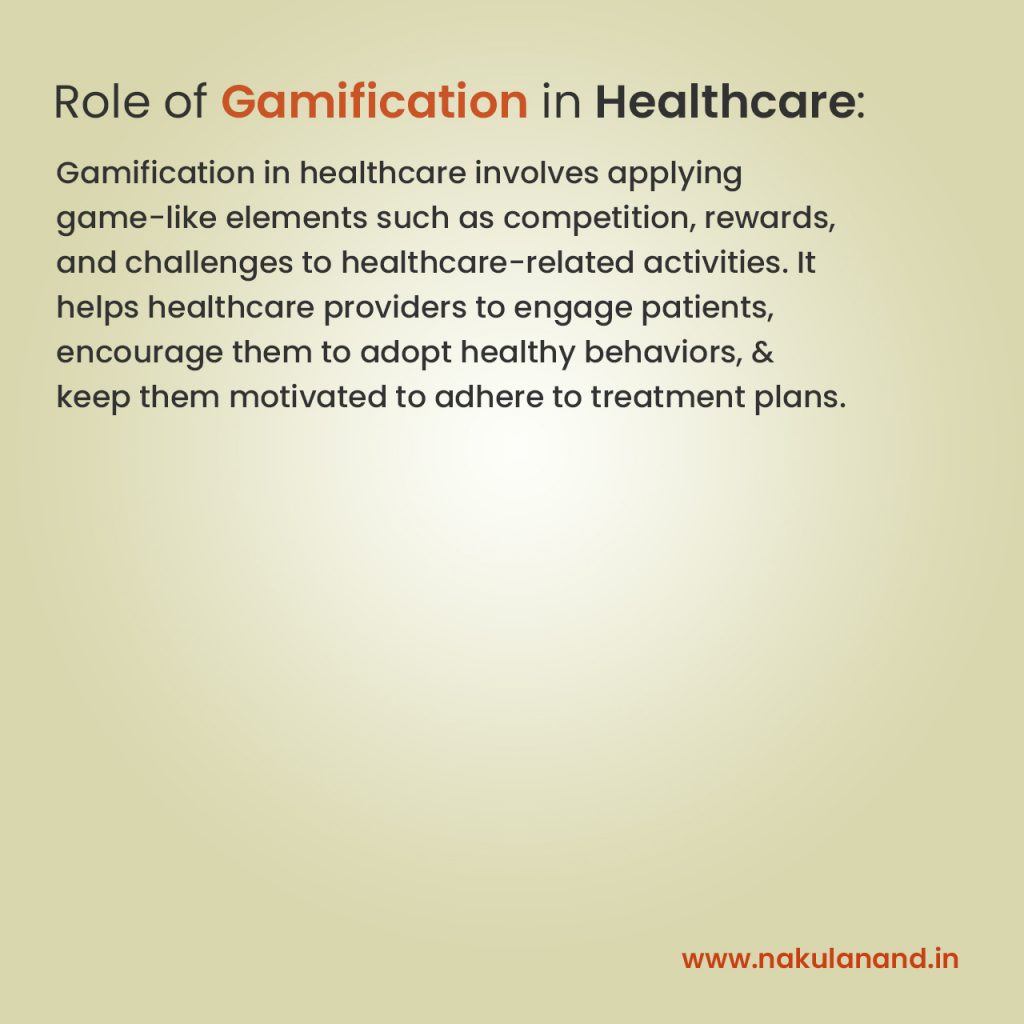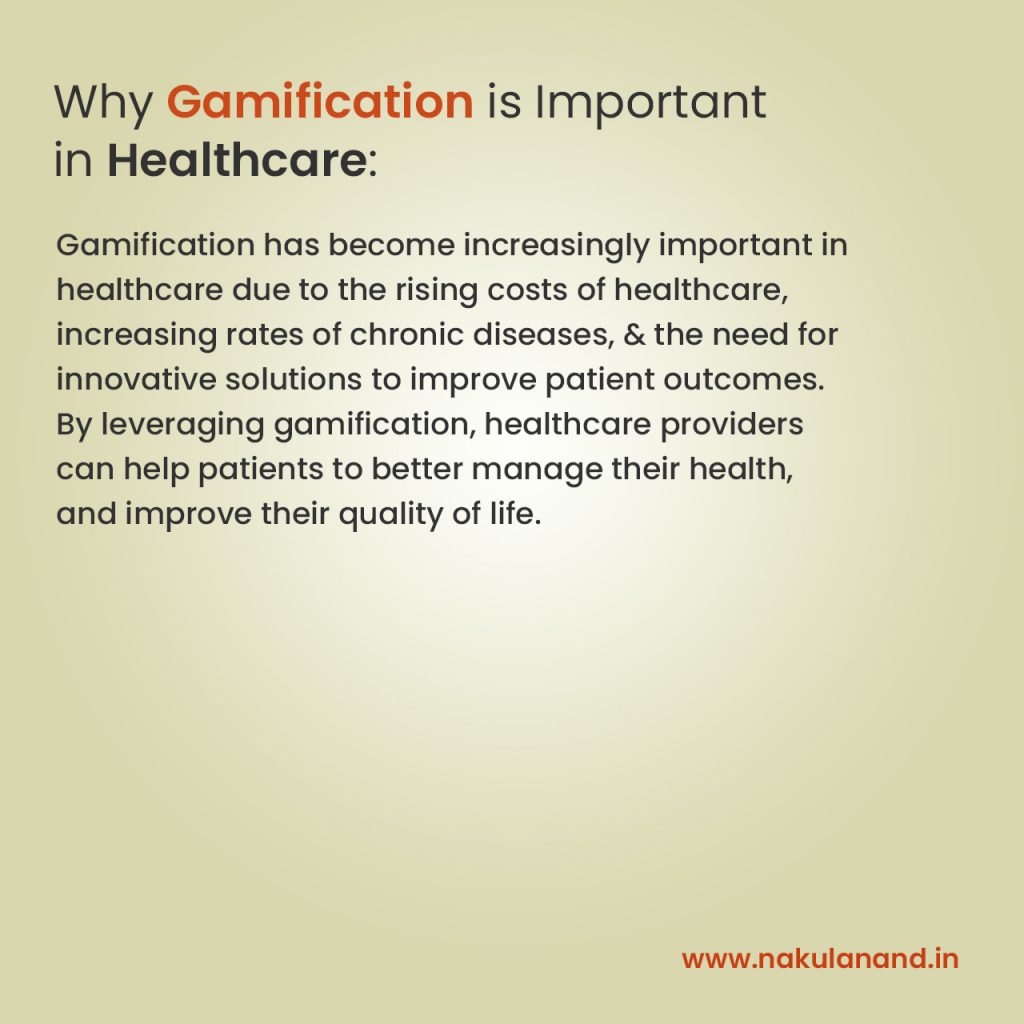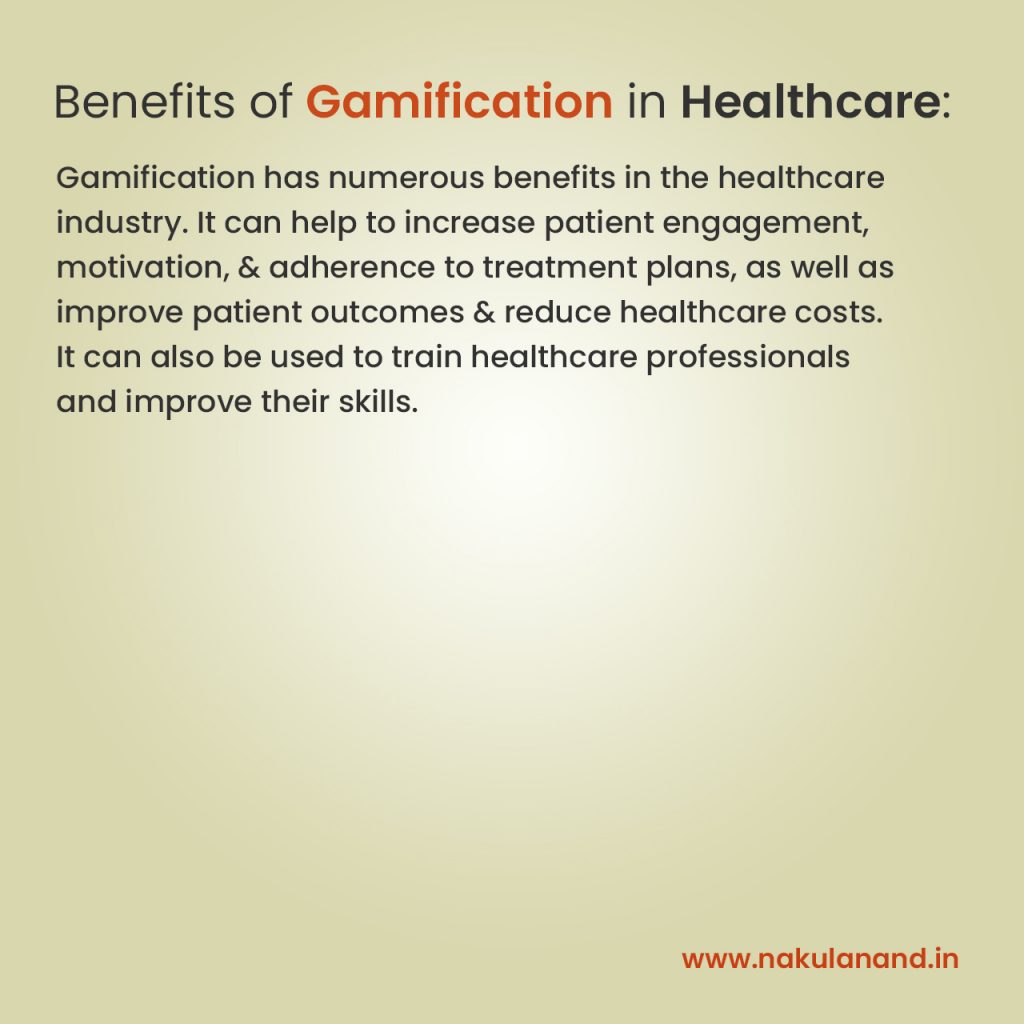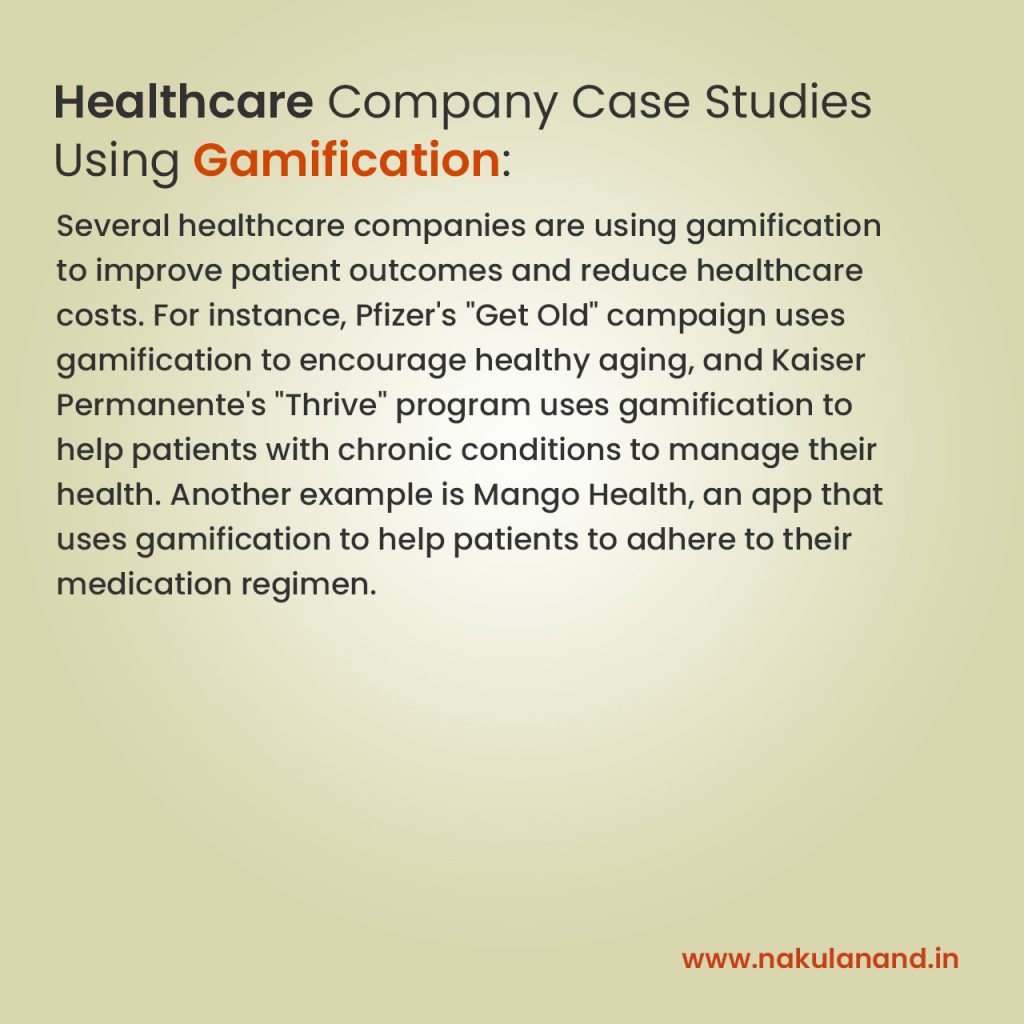Gamification has become a buzzword in the healthcare industry, as it has shown promise in improving patient outcomes, reducing healthcare costs, and enhancing engagement. In this blog post, we’ll discuss the role of gamification in healthcare, why it’s important, what are the benefits, and provide case studies of healthcare companies that are successfully using gamification.

Role of Gamification in Healthcare:
Gamification in healthcare involves applying game-like elements such as competition, rewards, and challenges to healthcare-related activities. It helps healthcare providers to engage patients, encourage them to adopt healthy behaviors, and keep them motivated to adhere to treatment plans.

Why Gamification is Important in Healthcare:
Gamification has become increasingly important in healthcare due to the rising costs of healthcare, increasing rates of chronic diseases, and the need for innovative solutions to improve patient outcomes. By leveraging gamification, healthcare providers can help patients to better manage their health, and improve their quality of life.

Benefits of Gamification in Healthcare:
Gamification has numerous benefits in the healthcare industry. It can help to increase patient engagement, motivation, and adherence to treatment plans, as well as improve patient outcomes and reduce healthcare costs. It can also be used to train healthcare professionals and improve their skills.

Healthcare Company Case Studies Using Gamification:
Several healthcare companies are using gamification to improve patient outcomes and reduce healthcare costs. For instance, Pfizer’s “Get Old” campaign uses gamification to encourage healthy aging, and Kaiser Permanente’s “Thrive” program uses gamification to help patients with chronic conditions to manage their health. Another example is Mango Health, an app that uses gamification to help patients to adhere to their medication regimen.
In conclusion, gamification has the potential to transform the healthcare industry by improving patient outcomes, reducing healthcare costs, and enhancing engagement. By incorporating game-like elements into healthcare-related activities, healthcare providers can motivate patients to take an active role in their health, and help them to achieve better health outcomes.




